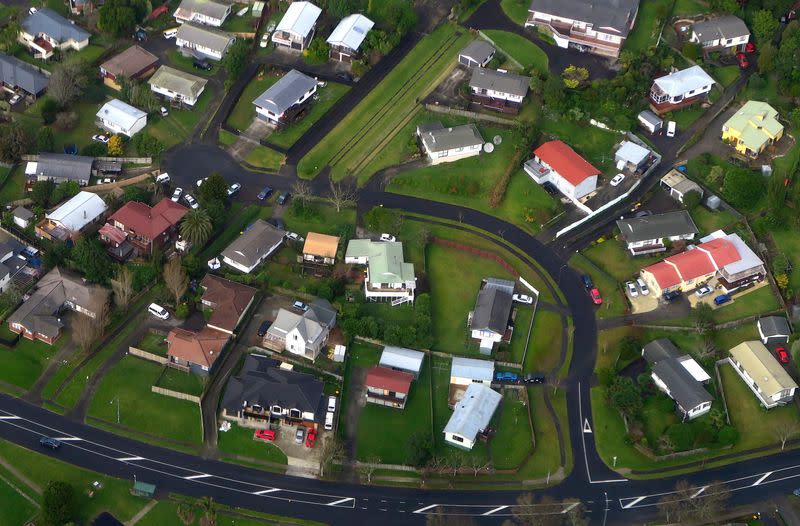New Zealand tightens some home loan rules

By Lucy Craymer
WELLINGTON (Reuters) - New Zealand's central bank on Tuesday introduced limits on how much housing finance lenders can provide for borrowers who want to take on a high amount of debt relative to their incomes.
The new rules come as policymakers seek to reduce default risk in New Zealand's housing market, which has seen sharp swings in prices.
Banks will need to comply with the new rules from July 1 and the restrictions will apply to new lending for residential properties for both owner-occupiers and investors, the bank said in a statement.
The Reserve Bank of New Zealand (RBNZ) will at the same time ease loan to value ratio (LVR) restrictions, which limit the amount of low deposit lending that they can make.
"Having both the debt to income (DTI) and LVR restrictions in place means we can better focus them on the risks that they are designed for while achieving the same or better overall level of resilience in the financial system," RBNZ deputy governor Christian Hawkesby said.
The move had been well flagged to the market and does not have monetary policy implications, according to Westpac economists.
However, Westpac noted that the marked differences in regional house price to income levels could lead to changes in investor behavior.
"As house price levels relative to income vary significantly across the country, once DTIs become binding in high price regions, they may incentivise investors from higher income regions to invest in lower house price regions," the note said.
The new DTI settings allow banks to have 20% of their loan portfolios to owner-occupier borrowers with a debt to income ratio over 6.
(Reporting by Renju Jose in Sydney and Lucy Craymer in Wellington, editing by Alistair Bell and Sam Holmes)

 Yahoo Finance
Yahoo Finance 